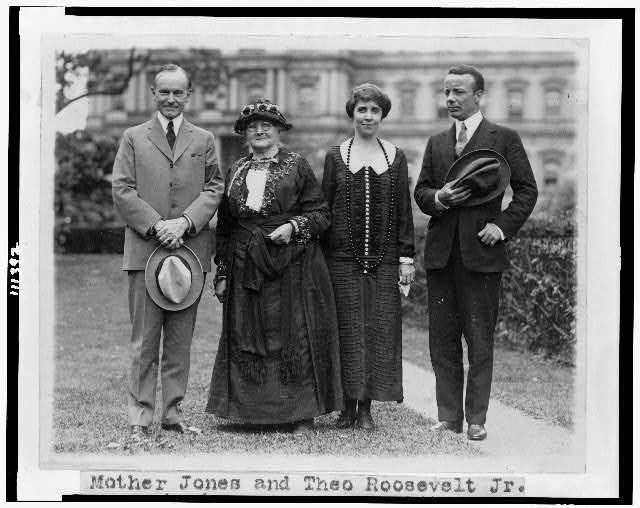April 2024
The New York Times recently ran an article about a billionaire who buys up shares in publicly traded corporations, gets himself elected to the boards, and then shakes things up. Some call him a corporate agitator, a label he rejects; he says his motives are simply to improve the companies. His current goal is to get on Disney’s board, but the CEO and the board are resisting. (This, the latest in a long list of corporate schemes, is expected to be resolved on April 3 when Disney holds its annual shareholder meeting.) The article goes into a lot of detail about who supports his efforts and who doesn’t, but the most telling fact was that his offer to buy a Manhattan co-op, for cash, was rejected. Apparently, the financial tycoons who live in the building don’t want a neighbor intent on changing the status quo. By the time I finished reading, the article had painted a picture of massive egos and ambitions colliding across today’s corporate landscape.
It just so happens that I recently read The Iliad, a text I managed to skip in my younger years. Now I’m in a reading group with four high school classmates. We convene on zoom every few months to discuss a book. (We can’t meet in person because we’re widely dispersed, from Warsaw to San Francisco.) Novels, nonfiction and poetry are all fair game, and we decided to tackle The Iliad together.
A few years ago I had tried it on my own but didn’t get far. I couldn’t keep track of all the warriors and gods and got bogged down in the minutiae of the battles. This time was different. One of the women in the group had been a college professor and taught The Iliad to her students. She clued us in to some of Homer’s poetic techniques, and encouraged us to relax if we couldn’t follow every bit of the intrigue among warriors and gods. The larger story about humanity was more important, advice I found hugely reassuring. Also, because I knew a group discussion lay ahead, I was motivated to read to the end.

Helen and Paris, c. 420-400 BCE, Harvard Art Museums
You probably know that the story takes place in the 10th year of war between the Greeks and the Trojans. The Greeks had sailed to Troy to find Helen, the most beautiful woman in the world, who had been abducted by Paris of Troy. (Whether Helen really objected to being taken from her husband Menelaus is a little ambiguous.) Two of the Greek warriors, Agamemnon and Achilles, are locked in a dispute over a Trojan woman whom Achilles claims as his battle prize and whom Agamemnon wants. (Obviously, women didn’t have a say in what happened to them.) Agamemnon commands the Greek army and Achilles is the greatest of the fighters; both are ambitious, stubborn and prideful. With their egos on the line, the dispute threatens to derail the entire Greek army.
Of course, this being a tale from ancient Greece, the gods are involved too. They frequently intervene on behalf of individual warriors. Each god is free to decide whom to support and they are at odds with one another. Thanks to their shifting alliances, the outcome on the battlefield tilts back and forth. Why do the gods care? As immortal beings, they could sit back and watch the humans, but they also are stubborn, prideful and drawn to intrigue. Although one will occasionally espouse a motive that sounds pure, most often they are as self-interested as the warriors. As we are today.

Achilles and Ajax, c. 530 BCE, British Museum
The corporate disputes covered in the NYT story are not on the scale of the Trojan War, which was bloody and graphically described. Nor is it the same as fighting now taking place in Ukraine, Gaza, Haiti, Sudan and many other places. But, like The Iliad, it is about ego and ambition, a human wanting success, power, validation. Things we all want, whether or not our exploits are covered by the NYT.
When my high school friends and I set out to read The Iliad, I thought it would be archaic, which it is. But it’s also relevant and relatable. Humans have been human for many millennia. Our gods, in many ways, resemble us.
Countless scholars have made these points before. I didn’t discover anything new, but the novelty for me was reading the text, one I found intimidating at the start, and seeing it reflected in the life around me. This often happens with books, usually ones that are historically closer to today. Homer pulls it off with a text written sometime around 750 B.C. that probably emerged from a much earlier oral tradition. So yes, ancient Greek gods and warriors are relevant today. Ego, ambition, and the propensity for violence have not gone out of style.
P.S. I used the word ambition in the subtitle of my book. On another occasion, I’ll write about why I did so, knowing its connotations.
P.P.S. The first image is Achilles and Penthesilia (an Amazon queen), c. 540-530 BCE, British Museum



